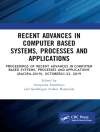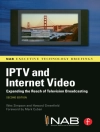This book features high-quality research papers presented at the International Conference of Mechanical and Robotic Engineering “Congress on Control, Robotics, and Mechatronics” (CRM 2024), jointly organized by SR University, Warangal, India, and Soft Computing Research Society, India, during 3–4 February 2024. This book discusses the topics such as combustion and fuels, controls and dynamics, fluid mechanics, I.C. engines and automobile engineering, machine design, mechatronics, rotor dynamics, solid mechanics, thermodynamics and combustion engineering, composite material, aerodynamics, aerial vehicles, missiles and robots, automatic design and manufacturing, artificial intelligence, unmanned aerial vehicles, autonomous robotic vehicles, evolutionary robotics, humanoids, hardware architecture, industrial robotics, intelligent control systems, microsensors and actuators, multi-robots systems, neural decoding algorithms, neural networks for mobile robots, space robotics, control theory and applications, model predictive control, variable structure control, and decentralized control.
Table des matières
Computational analysis of the putative endoglucanases in the genome of Cellulomonas flavigena ATCC 53703.- Leaf Disease Detection Using Deep Learning.- Evaluating the Potential of Mobile Applications for Mental Health Prediction: A Review.- Evaluating Predictive Efficacy of Machine Learning based Morphological Analysis for Technological Forecasting.- Optimizing Rear Underrun Protection Device (RUPD): Design and Material Selection for advanced safety.- Linkage Driven Three Fingered Underactuated Robotic Hand Modelling and Analysis for Dexterous Grasping and Manipulation.- Implementation of a High-Performance 32-bit Floating Point Multiplier via the Karatsuba Algorithm.- Gesture Recognition in Mock Interviews for Placements using Machine Learning.- Computational and microbial analysis of metagenome of commercially available cookies revealed the presence of numerous bacteria.- Implementation Of FPGA Based 3 Stage Pipelined RISC-V.- A Hybrid Energy Storage System for Rechargeable Vehicles.- Smart Railway Platform Bridge Design with Hall effect sensor.- MIMO Antenna Systems: Performance, Metrics, and Challenges.- Analyzing the Efficacy of Clustering-Based Routing Protocols in Vehicular Ad Hoc Networks: A Performance Evaluation.- Identification of Suitable Discrete Wavelet Order for Mo-tor Imagery and Motor Movement Waveforms.- Advancements in Handwritten English Character Recognition: A Comprehensive Analysis Using Pattern Recognition and Deep Learning on Scanned Documents.- Implementation of Feature Based Medical Image Retrieval (FBMIR) through a Deep Convolutional Neural Network (CNN).- Medi Care: Health Care Prediction using Machine Learning.- Application of Simulation Modeling Technology to the Analysis of Production Facilities Efficiency.- Arduino-Powered Smart Crosswalk Signal System.- Condition Monitoring of Rotary Machine Parts.- Control of Attitude Trajectory of Launch Vehicle using Optimal LQR based PID Controller.- An Adaptive Multilayer Neural Network based Power Point Tracking Technique for Solar Powered Battery Charging Network.
A propos de l’auteur
Dr. Pradeep Kumar Jha is presently working as Professor in the Department of Mechanical and Industrial Engineering. After receiving Bachelors and Masters degree from M.I.T. Muzaffarpur, Bihar and National Institute of Foundry and Forge Technology, Ranchi, Jharkhand in the year 1995 and 1999 respectively. Professor Jha obtained his Ph.D. degree from IIT Kharagpur in the year 2004. Prior to joining as Assistant Professor in IIT Roorkee in the year 2007, he also served as Sr Lecturer and Assistant Professor at IIT Guwahati and IIT (ISM) Dhanbad respectively. Prof Jha specializes in the area of Manufacturing Engineering, with special emphasis on casting operations, Modeling and simulation of continuous casting operations and Metal Matrix Composites. He has to his credit more than 100 publications in International and national journals and conferences and two book chapters. He earns immense respect among the researchers working in the domain of process modelling studies in continuous casting, owing to novel and impactful research contributions in that domain, the most recent being use of magneto-hydrodynamic applications in continuous casting. In his broad area of expertize, he has supervised so far 10 Doctoral thesis and nine students are already on roll. He has also supervised about 40 M.Tech thesis and 25 B.Tech thesis. He has dealt many sponsored research projects from funding agencies like DST, CSIR, SERB (Govt of India). Professor Jha has been involved with teaching of subjects with Manufacturing and Thermal streams. He has been an active contributor to the online education platform, NPTEL, sponsored by Government of India, by developing and running eight different courses in the domain of his teaching and research. These courses are very popular among students of IITs, IIMs and other Engineering Institutes of the country and even abroad. Professor Jha has organized two International Conferences and four short term courses under CEC/QIP/TEQIP cell of IIT Roorkee. Professor Jha has been the member of professional bodies like ASME, Indian Institute of Metals, Institute of Indian Foundrymen and Indian Water Resources Society. He has been on the panel of reviewers of many International Journals.
Prof. Prashant K. Jamwal earned Ph D degree and a post-doctoral fellowship from the University of Auckland, New Zealand. Earlier he had obtained M. Tech. from I.I.T., India, securing first position in all the disciplines and B. Tech. from MNREC, Allahabad, India. Presently, he is working as Professor at the school of engineering and design sciences, Nazarbayev University (NU), Astana, Kazakhstan and as adjunct professor at University of Canberra, Australia. He is actively pursuing research in Robotics and Artificial Intelligence, multi-objective evolutionary optimization, biomedical engineering, and Renewable energy. Over the past decade, he has applied his research in the development of medical robots for rehabilitation and surgical applications besides developing improved algorithms for cancer data analytics. Prof. Prashant received three prestigious World Bank Grants and has launched two startup companies and established a Center of Excellence in Medical Research and Robotics. Lately, he has successfully commercialized an autonomous robotic Gait Rehabilitation System after furnishing all the regulatory requirements, thus making expensive medical robots accessible to small clinics. He has more than 25 years of teaching and research experience and has published more than 100 research articles in reputed international journals/conferences. Prof. Prashant has won many awards such as Jewel of India, Asian Universities Alliance Scholar Award, Best paper awards, etc., and in 2019 United Nations acknowledged one of his robotics projects in top twenty innovative projects in the world. He is working as Editor for the International journal of bio-mechatronics and bio-robotics and as reviewer to quite a few international journals and conferences of repute. Prof. Jamwal led many international funded research projects and has so far received research grants worth more than $9 million including prestigious World Bank grants.
Dr. Brajesh Tripathi received his Ph D in Mechanical Engineering in 2008 from Indian Institute of Technology Kharagpur, India. He was a Post Doctorate Fellow at the Michigan State University, USA for two and hald years and worked on a US government sponsored project on Computational Fluid Dynamics. Presently, he holds the Associate Professor positions at Rajasthan Technical University Kota. Dr. Triapthi received 06 research grants for various sponsored projects from GNIDA, NAL, BRNS, MHRD and AICTE. He has guided 08 Ph D’s and 26 M. Tech. Scholars. He has published more than 130 research articles in peer reviewed International Journals and Conferences. Dr. Tripathi’s primary interest is working on practical problems using fundamental concepts of Computational Fluid Dynamics especially in diesel engine, heating, ventilation and air-conditioning, turbulent flows, unconventional energy systems etc.
Prof. Deepak Garg is Ph D in Computer Science with specialization in Efficient Algorithm Design. With 25 years of experience he has worked as Professor and Dean, School of Computer Science at Thapar Institute of Engineering and Technology, Patiala and Bennett University, Greater Noida. He is Distinguished Professor in Artificial Intelligence and known as one of the top voices in the country on AI. He is regular Blogger in Times of India with a nickname of ‘Breaking Shackles’ and writes about Higher Education landscape and AI. He is on the Advisory Committee of AIRAWAT, Super Computing Mission of Govt of India to create a 1 Exaflop backbone infrastructure for the country. He has represented on various Committees at NAAC, NBA, UGC and AICTE. Working with Startup Founders is his passion and he serves on tech advisory board of Drishya.ai, Byte XL and Global AI Hub. He is the only CAC ABET Commissioner from the country and has served as PEV from last six years. He has been in the Board of Governors of IEEE Education Society, USA. He served as Chair IEEE Computer Society, India Council and IEEE Education Society, India Council. He is on Academic Councils, Board of Studies of various institutions. He has 160 publications with 1600 Citations, h-index 20 and i10 index 41. He has published in top journals including IEEE and ACM transactions. He has guided 14 Ph D students. His research area is Reinforcement Learning and Generative AI. He is steering Committee Chair on Annual IEEE/Springer International Conference on Advnace Computing thats running in its 13th year. He has received research grants to the tune of 10 million INR including Royal Academy of Engineering, UK, DST, DBT, AICTE, DSCI etc. He has visited 20+ countries creating 100+ collaborations with Universities and Industry. He served as Director NVIDIA-BU Research Center on AI. He led the largest AI Ecosystem of the country known as leadingindia.ai skilling 1 million students with 700+ consortium collaborations. Prof Garg has given 350+ talks across the country as keynote speaker or Invited expert. He is on a mission to make SR University as a model for private University education in the country.
Harish Sharma is an Associate professor at Rajasthan Technical University, Kota in Department of Computer Science & Engineering. He has worked at Vardhaman Mahaveer Open University Kota, and Government Engineering College Jhalawar. He received his B.Tech and M.Tech degree in Computer Engg. from Govt. Engineering College, Kota and Rajasthan Technical University, Kota in 2003 and 2009 respectively. He obtained his Ph.D. from ABV – Indian Institute of Information Technology and Management, Gwalior, India. He is secretary and one of the founder member of Soft Computing Research Society of India. He is a life time member of Cryptology Research Society of India, ISI, Kolkata. He is an Associate Editor of “International Journal of Swarm Intelligence (IJSI)” published by Inderscience. He has also edited special issues of the many reputed journals like “Memetic Computing”, “Journal of Experimental and Theoretical Artificial Intelligence”, “Evolutionary Intelligence” etc. His primary area of interest is nature inspired optimization techniques. He has contributed in more than 125 papers published in various international journals and conferences.












